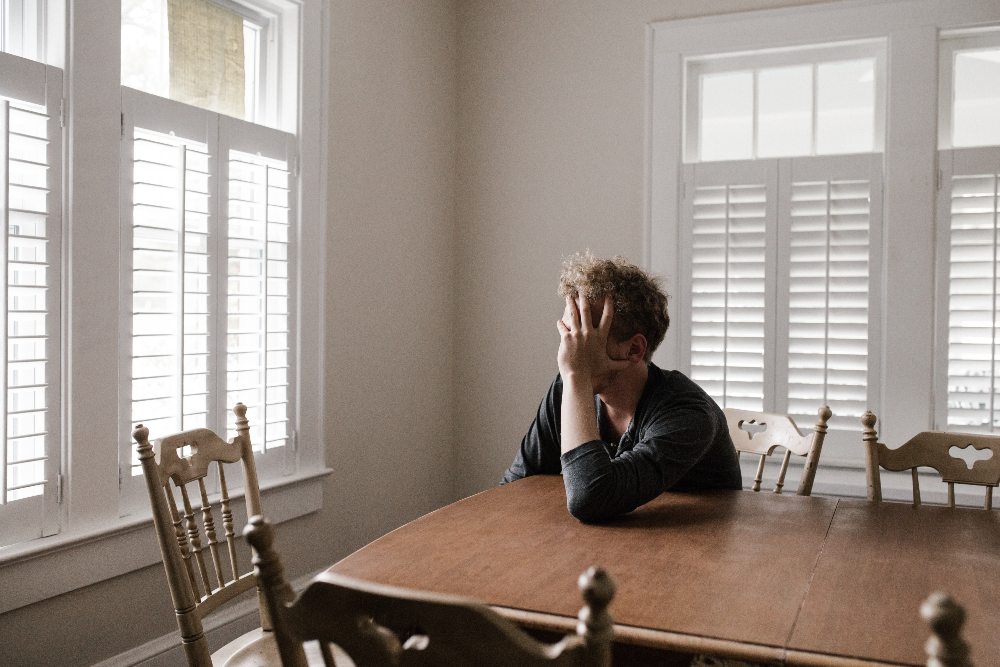What do you think of this article?
By Dr. David Woo - Published on February 26, 2021
Last updated on January 6, 2025

Updated on October 31, 2024
One of the most common questions patients ask is: “How long does it take to recover from depression and anxiety?” The truth is, there’s no one-size-fits-all answer. Each patient’s depression treatment timeline is unique. The same goes for anxiety, whether on its own or with depression. However, understanding the factors that impact depression treatment timelines can help set realistic expectations.
At Madison Avenue TMS & Psychiatry, we provide various therapies, including transcranial magnetic stimulation (TMS) and ketamine for patients with depression, anxiety, and related conditions. Let’s explore how long it takes to recover from depression and anxiety using different treatments.
Jump to:
- Factors That Affect Depression Recovery Time
- Depression Treatment Timeline Comparison
- Recovery From Depression And Anxiety
- How To Track Your Depression Recovery
- Depression And Anxiety Treatment In NYC
Factors That Affect Depression Recovery Time
Depression recovery time varies greatly depending on a few key factors, including:
- Severity of the diagnosis
- When treatment is started
- How the patient responds to treatment
- The type of treatment used
This variety makes it challenging to predict recovery times accurately. However, we can use the following evidence as a guideline.
How long does it take to recover from depression and anxiety without medication?
Although every individual is unique, statistics can give us some idea of the recovery rate for depression and anxiety for individuals who do not seek treatment.
- Average depression recovery time: Without treatment, around 54% of young people recover from depression within a year. For others, depression may persist for several months to years, depending on its severity and intervention timing.
- Average anxiety recovery time: Similarly, 48% of young people recover from anxiety within a year without specific mental health treatment.
The above statistics are taken from a recent study in the British Medical Journal (1). It’s important to note that the study focuses on younger individuals, and may not be reflective of the older population. If you are experiencing depression symptoms, it is always recommend to seek treatment as soon as possible.
Early Treatment Increases Effectiveness
Starting treatment early makes a significant difference in depression recovery time. Research shows that the sooner treatment is initiated, the higher the chances of achieving remission and reducing the risk of relapse (2).
Delaying treatment can cause symptoms to worsen, making recovery more challenging.
Depression Treatment Timelines For Different Methods
Different treatments have different timelines for effectiveness. Finding the right treatment can take time and might involve some trial and error. Below is a breakdown of how long specific treatments typically take:
Antidepressants
There are many different classes of antidepressants. These drugs are usually the first line treatment for people with depressive symptoms.
- Varies greatly based on the individual and medication type.
- Patients may start seeing results in 2-4 weeks.
- For some, it can take 6 weeks or longer to notice improvement.
- It may take a year or more to achieve full remission.
It is important to note that antidepressants do not work for everyone, and some individuals experience intolerable side effects. Antidepressants should be taken alongside regular consultations with a mental health professional, who can monitor progress help you find the right dosage or medication.
Transcranial Magnetic Stimulation (TMS)
TMS is an FDA-approved treatment for depression, obsessive-compulsive disorder (OCD), and anxious depression. It uses a helmet-like device, operated by your doctor, to stimulate the parts of the brain that are believed to be under-active in people with depression. Studies have also shown it to be effective for other mental health conditions such as anxiety, borderline personality disorder, and post-traumatic stress disorder (PTSD).
- TMS is a non-invasive, medication-free treatment.
- Standard course is 9 weeks: 6 weeks of intensive sessions, followed by a 3-week taper period.
- Some patients see improvement in as little as 2 weeks.
- Many reach remission by the end of the treatment course.
- Some may require additional, ‘maintenance’ sessions before achieving remission.
Ketamine
Ketamine is used in clinical settings as an anesthetic (in the form of an IV drip) and as a therapy for acute depression (in the form of a nasal spray).
- Ketamine is a fast-acting treatment for depression, especially for those with treatment-resistant depression.
- Patients may notice improvements in mood within hours or days.
- Typically administered over a series of sessions in a few weeks.
- Full remission may take several weeks of repeated treatments.
Want to know more about ketamine for depression? Read our article: Ketamine vs. TMS For Depression
Depression Treatment Timeline Comparison: Antidepressants, TMS, And Ketamine
| Treatment Type | Average Recovery Time | Advantages | Drawbacks | Best For |
|---|---|---|---|---|
| Antidepressants | Initial effects: 2-4 weeks Full effects: 6-12 weeks or more | Convenient oral medication; Widely prescribed | Side effects like weight gain, sexual dysfunction | Mild to moderate depression, first-line treatment |
| TMS | Initial effects: 2-4 weeks Full remission: 6-9 weeks | Non-invasive; No systemic side effects | Requires daily sessions over several weeks, <1% risk of seizure | Treatment-resistant depression, patients seeking non-medication options |
| Ketamine | Initial effects: 1-2 days Full effects: 2-4 weeks | Rapid relief; Effective for treatment-resistant depression | Requires multiple infusions; Possible side effects like dissociation | Severe or treatment-resistant depression |
Recovery From Depression And Anxiety
Why consider depression and anxiety together? This is because depression and anxiety often co-occur, with around half of people diagnosed with depression also experiencing anxiety symptoms (3).
These conditions share similar symptoms, such as excessive worry, sleep disturbances, and difficulty concentrating, making them challenging to differentiate. When they occur together, they tend to intensify each other, potentially leading to longer recovery times.
Many of the same medications, such as selective serotonin reuptake onhibitors (SSRIs) are used to treat both depression and anxiety, with similar expectations for recovery times.
How To Track Your Depression Recovery
It’s important to monitor your symptoms regularly to identify improvements. One good technique to monitor your own progress is to make a habit of journaling daily feelings. This can help highlight subtle changes over time.
Signs Your Depression Symptoms Are Improving:
- More energy throughout the day
- Less irritability
- Better sleep patterns
- Feeling less overwhelmed
- Increased social engagement
The best way to have a clear idea of how your recovery from depression or anxiety is going is to check in regularly with your doctor. This way, you get the benefit of sharing your concerns and progress with a sympathetic professional who has medical training, experience, and the ability to adjust treatment as needed.
At Madison Avenue TMS & Psychiatry, we provide medication management services to help patients monitor their recovery and adjust treatments for best results. Likewise, treatment plans with TMS or ketamine include regular scheduled check-ins and follow up sessions, if necessary.
We appreciate that it’s not always easy to find time to see a doctor, especially when trying to balance managing our symptoms, professional, and personal lives. That’s why we offer telehealth consultations, accessible via video call from the comfort of your home, on your schedule.
Depression And Anxiety Treatment In NYC
If you or someone you know is dealing with depression, remember that recovery can be a gradual process. It’s normal to feel frustrated if progress seems slow.
There is no guaranteed fast track to depression recovery. It’s all about finding the best treatment for you as an individual. However, getting treatment as early as possible, staying consistent with treatment and maintaining open communication with your healthcare provider can significantly improve your chances of a full recovery.
If you’re experiencing symptoms of depression or anxiety and living in the New York area, then Madison Avenue TMS & Psychiatry can help. Contact us online or call (212) 731-2033 to schedule an appointment or consultation. The sooner treatment begins, the faster your path to recovery.
Additional resources:
- Insurance Coverage For TMS: Everything You Need To Know
- Travel for Mental Health: Anxiety & Depression Relief
- The Connection Between OCD & Depression
Sources:
- Roach A, Stanislaus Sureshkumar D, Elliot K, et al. One-year recovery rates for young people with depression and/or anxiety not receiving treatment: a systematic review and meta-analysis. BMJ Open. 2023;13:e072093. Link. Accessed October 4, 2024.
- Halfin A. Depression: the benefits of early and appropriate treatment. Am J Manag Care. 2007 Nov;13(4 Suppl):S92-7. Link. Accessed October 4, 2024.
- Ironside, M., DeVille, D. C., Kuplicki, R. T., Burrows, K. P., Smith, R., Teed, A. R., Paulus, M. P., & Khalsa, S. S. The unique face of comorbid anxiety and depression: Increased interoceptive fearfulness and reactivity. Frontiers in Behavioral Neuroscience, 16. 2023;1083357. Link. Accessed October 4, 2024.
Dr. David Woo is the owner and head clinical psychiatrist at Madison Avenue TMS and Therapy in New York City. Dr. Woo has been seeing patients in private practice since 2002, always with the goals of combining evidence-based medicine with psychodynamic psychotherapy and collaborating with other mental health professionals to ensure the best possible outcomes for his patients. He has been certified to administer TMS at his practice since 2017. His greatest clinical interests include helping patients suffering from depression, anxiety, and obsessive compulsive disorder.
Follow Dr. Woo On









